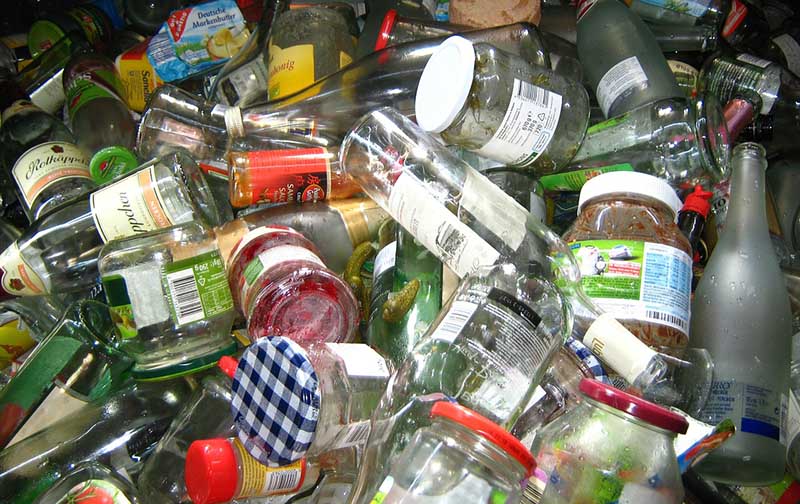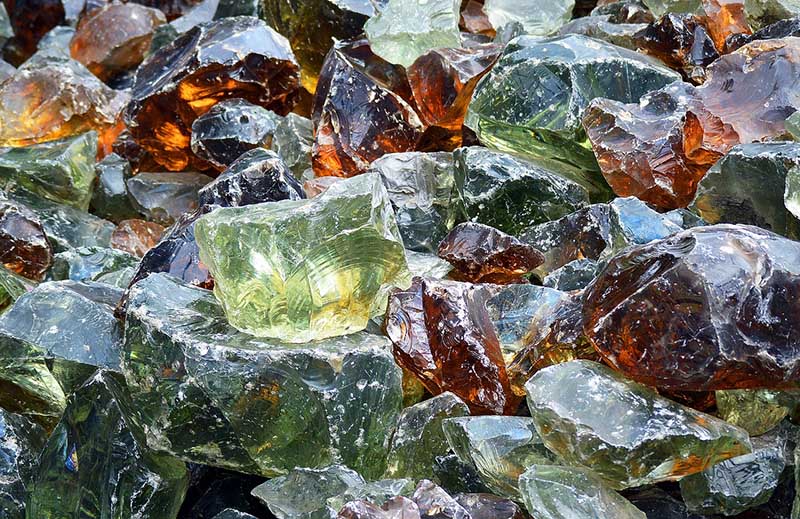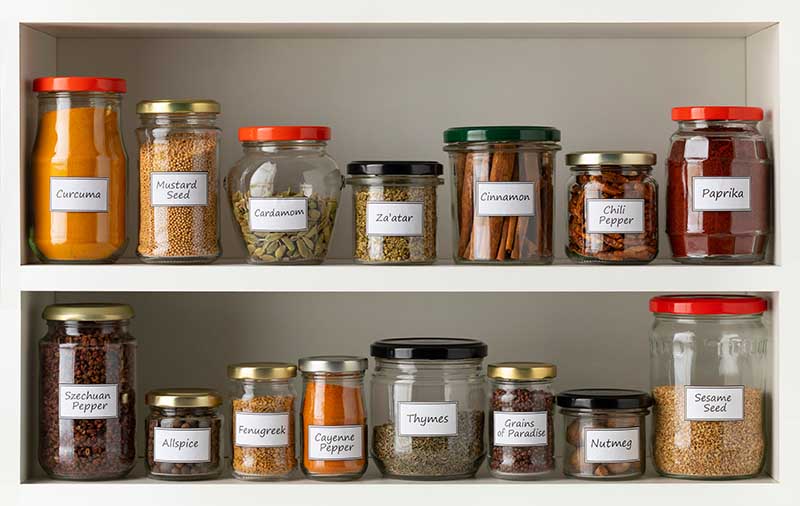Is Glass Recyclable? How Is It Properly Disposed Of?
-

- Last updated:

Glass is a clear, stunning material we handle every day—it’s on our smartphones, loaded in cupboards, and beautifies our windows. Glass can be natural or manufactured. Natural glass is found in volcanic rocks such as obsidian or silica—a type of sand consisting of silicon dioxide and quartz. Glass manufacturing melts down silica and adds minerals to provide different shades.
But is glass recyclable, and how do you properly dispose of glass? Read on to find out more.

Can Glass Be Recycled?
During a glass product’s lifetime, it may crack, tarnish or cease to be useful, resulting in it being discarded. According to the US Environmental Protection Agency, in 2018, 12.3 million tons of municipal solid waste was glass. But rarely do we stop and ponder whether or not we can recycle or dispose of glass safely.
Glass is reusable. In fact, it is one of the few materials that can be recycled forever without transforming into something else. Glass recycling started in the 1960s, and by 2017, the industry had grown by over 30 times.

Is Glass Dangerous to the Environment?
Glass may or may not be dangerous to the environment—it depends. Glass is a natural material, which means it is technically not dangerous to the environment.
The process of transforming glass into glassware requires the transportation of raw materials, converting fuels into heat, and packaging. These activities release toxic wastes, however environmentally friendly the process is. Thus, glass has an indirect negative effect on the environment.

How Do You Recycle and Dispose of Glass?
1. Set up a Curbside Glass-Collection Point
Glass collection points are a popular way of recycling glass. A curbside glass collection point is a place on the side of the road or pavement where used glass items are deposited and later collected by glass recycling companies. Most neighborhoods already have a glass collection point. Set up a glass collection point if your neighborhood doesn’t have one. Not only will you be recycling glass, but you will also enable your neighbors to do the same.
After setting one up, remember to share its location with recycling companies and neighbors.
2. Garden DIY Projects
Gardening enthusiasts widely use glass in various DIY projects. An interesting glass DIY project is using glass jars as flower vases. Find big glass jars, carefully drill drainage holes at the bottom, and fill them with a fertile mixture of soil or coco peat. Water and plant small flowers in them. These jars will embellish your home with glamorous colors.
As we have said, recycling glass in your garden is an open-ended idea, and anything you come up with personalizes your garden—the options are endless.
3. Reuse Glass Items as Kitchenware
At home, most reusable glasses are found in the kitchen. Take, for example, glass jars. You only need to peel off stickers, wash and rinse them with clean water and you have a nice container. Use them in a pantry to store cereals, flour, sugar, and spices.
Glass bottles can also be recycled in the kitchen as containers for storing milk, juice, and water. However, label the containers to avoid confusion.
Lastly, collect broken glasses, mix them with cement, and use them to decorate kitchen counters. The pieces create amazing patterns.

4. Industrial Recycling
The most common and effective method of recycling glass is industrial recycling. Industrial recycling is where companies, like bottling companies, collect and recycle glass and glass-based materials.
Bottling companies buy or collect used glass bottles and clean and recycle them. Before the process, bottles must pass through a scanner to sort out good bottles from broken ones. Bottles that are safe to use are thoroughly washed in a detergent again, rinsed, and dried by hot air. They will then head over to the conveyor belt to be filled up.
Cracked bottles, on the other hand, are ground down and heated in a furnace at over 2,400 degrees Fahrenheit. Hot temperatures melt them down into an amorphous liquid, allowing them to be poured into molds.
Some recycling plants may sell glass to bottle-making companies, who then mix them with limestone and other minerals to make bottles. Adding minerals lowers the melting point of glass and improves factory efficiency.
How Long Does Glass Take to Decompose?
Glass is a naturally occurring mineral that we refine to improve its qualities. Scientifically, minerals don’t decompose; instead, they transform under heat, pressure, or through a chemical reaction to form solid, liquid, and gaseous compounds.
Glass breaks down to form different compounds and this process may take millions of years.

Conclusion
Glass can be recycled infinitely without changing its quality. Use glass in DIY garden projects and flower vases. Indoors, reuse glass jars and bottles in storage containers. You can even collect pretty pieces and mix them with cement and sand as decoration on counters or walls.
Featured Image Credit: Gerd Altmann, Pixabay
Contents

